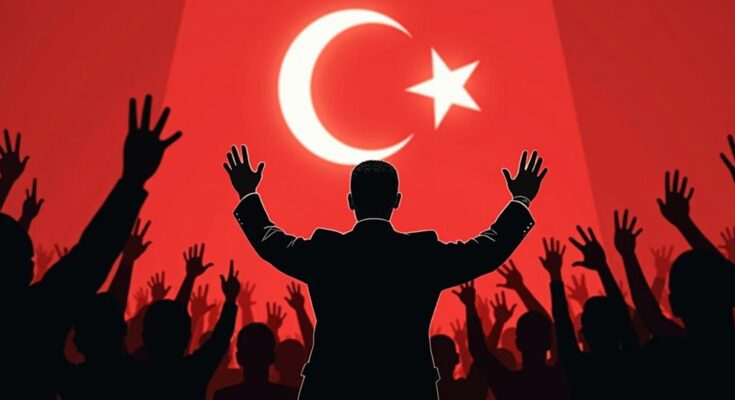President Kais Saied is expected to win the upcoming presidential election in Tunisia without significant opposition, as critical challengers are imprisoned and many others are disqualified from contesting. The political climate reflects a consolidation of authoritarian power that undermines the democratic aspirations sparked by the 2011 Arab Spring.
In Tunisia, the forthcoming presidential election is marred by a sense of inevitability regarding the victory of President Kais Saied, who has significantly restrained political dissent. This election, set for Sunday, is characterized by a conspicuous absence of candidate engagement: there exists a notable lack of campaign posters, debates, and a palpable sense of electoral suspense. The president’s leading opponent is currently imprisoned, burdened by multiple sentences that his legal team argues are based on fabricated charges, with the most severe amounting to a 12-year term. Moreover, several other potential candidates have similarly been jailed or subjected to house arrest, while more have faced disqualification from running. The political atmosphere is starkly different from the euphoria surrounding the 2011 revolution, which succeeded in dismantling the long-standing dictatorship of Zine El-Abidine Ben Ali. That uprising symbolized hope for democratic reform; however, many Tunisians today express disillusionment, feeling that their aspirations for a functional democracy have not materialized. The relentless crackdown on dissent and President Saied’s authoritarian grip leave little doubt about his determination to retain control over Tunisia’s political landscape. Souhaib Fercheche, a senior member of a civic watchdog organization, remarked on Saied’s ruthless approach: “He’s willing to do anything it takes to stay in power — dividing Tunisians, prosecuting them, accusing them.” The consensus is that the optimism surrounding the Arab Spring has significantly waned, replaced by skepticism regarding the political future of Tunisia.
This article discusses the challenges facing Tunisia’s democracy as President Kais Saied approaches an election that many perceive as predetermined due to his consolidation of power and the repression of political opposition. Tunisia is historically significant as it is the birthplace of the Arab Spring, which initiated a wave of protests across the region in 2011. The article highlights the stark contrasts between the expectations of a democratic government following the revolution and the current authoritarian regime led by Saied. It elaborates on how political repression has evolved, with many opposition figures imprisoned or rendered ineligible to participate in elections, signaling a profound regression in democratic practices.
In conclusion, Tunisia is poised for an election that is seen as lacking legitimacy due to President Kais Saied’s oppressive tactics against dissent and the absence of viable challengers. The initial hopes of the 2011 revolution have largely deteriorated into disillusionment, with many citizens questioning the viability of democratic governance in their nation. As Saied appears poised to reaffirm his control, the future of democracy in Tunisia remains troubling and uncertain.
Original Source: www.nytimes.com




